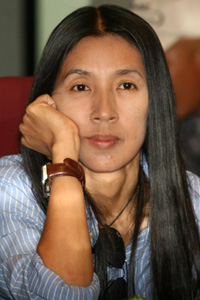
When Prime Minister Prayut Chan-o-cha set up the cabinet forward command, a 13-member delegation of special government representatives to coordinate efforts to bring peace to the deep South, it appeared to be a "dream team" at the beginning. After a month, the team now seems to be running into the same old problems that could bog down their efforts.
Ahead of the appointment of the delegation, which is under Deputy Defence Minister Udomdej Sitabutr, there was opposition from some quarters.
Some worried the presence of the delegation in the area could send the wrong signal that the situation has worsened.
Security authorities in the far South were also concerned the delegation would step on their toes and trigger disagreements and conflicts among various local authorities. Some also worried they would face investigation, be forced into work or be supervised by the new team.

Wassana Nanuam is a senior news reporter covering military affairs for the Bangkok Post.
But Gen Prayut and Deputy Prime Minister and Defence Minister Prawit Wongsuwon needed to have their "representatives" fielded to the region as a symbol of their commitment to solve the southern woes.
The other minister in the team is Deputy Education Minister Surachet Chaiwong. It also includes seven generals, most former 4th army chiefs who are familiar with the problem, as well as one police officer and three civilians who once worked at the Southern Border Provinces Administrative Centre (SBPAC) and the Office of the National Security Council.
This cabinet forward command has been given the clear instruction their job is not to order people about, but to coordinate, facilitate, monitor and supervise efforts to tackle the southern insurgency. Those efforts are undertaken by local operational agencies and 20 ministries.
Gen Udomdej himself has re-emphasised such a role for his team, saying they will simply speed up processes and accelerate actions. This is helpful because they can report directly to both Gen Prayut and Gen Prawit.
In practice, soldiers in the area still regard Gen Udomdej as their supervisor due to his capacity as deputy defence minister.
This has brought about an uncomfortable and awkward environment among agencies involved, especially the Internal Security Operations Command Region 4's Forward Command, under the leadership of 4th Army Region commander Lt Gen Piyawat Nakwanich, which has taken the lead in tackling the southern violence.
As Lt Gen Piyawat is a younger brother of former army chief Gen Teerachai Nakwanich who was said to have a conflict with Gen Udomdej, all eyes are on the two to see whether they can work in harmony in the deep South. But Gen Udomdej dismissed the conflict reports, saying it was merely a rumour.
He insisted he was the one who chose Lt Gen Piyawat to work on intelligence in the area during the time he was the army chief.
However, both Lt Gen Piyawat and army chief Chalermchai Sitthisart were absent from the first field meeting called by Gen Udomdej and his cabinet forward command team. This prompted speculation about possible rifts between them.
Gen Aksara Kerdphol, the head of the government's team handling peace talks on the southern unrest, has given his impression about what happened on the ground.
"Those who have retired should rather help coordinate operations of soldiers in the area and offer them moral support. They should not order them about because they are under the supervision of both the 4th Army Region commander and the army chief," said Gen Aksara.
He was commenting amid rumours that Gen Udomdej may have stepped on the toes of the generals and provided instructions that seem to cross the line.
Telling the media that he will carry out a quarterly assessment and inform the prime minister of those who fail to perform, Gen Udomdej is understood to have threatened soldiers with job transfers.
During Gen Udomdej's first visit to the South in Pattani, there were 19 attacks carried out in the evening in Narathiwat, Pattani and Songkhla. The attacks sent a signal of opposition to the cabinet forward command.
Sources from the team said both Gen Udomdej and Gen Surachet are both committed to their mission. Gen Surachet has visited the South every week for over two years in his capacity as deputy education minister. The Prayut administration aims to deploy sports and education to help tackle the southern violence.
The Ministry of Education has appointed 23 officers to work in the field, and will move the education office from Yala to Phra Suriyothai military camp at the 15th Infantry Division in Pattani to join the operation office of the cabinet forward command.
In the end, it has proved difficult for Gen Udomdej to gain total control of over nine military top brass in the far South as they are all confident in their own work. He is in the midst of a competitive environment.
Army commander Gen Chalermchai has been active since being appointed to the top job in October. He has restructured Isoc by reducing the number of its operational coordination units and re-classifying its functions.
With a solid intelligence background, Gen Chalermchai, has set up several intelligence units in the three southernmost provinces to monitor threats.
He even recruited his former classmates and colleagues from the Special Warfare Command to work as his own intelligence team to integrate and synthesise information received from different units.
Gen Chalermchai has made an unannounced field visit, his first as army chief, to the South and discussed intelligence work with Lt Gen Piyawat. Both Isoc and the army have their hands full tackling the southern violence.
There are many competent generals making their own utmost efforts. This has made Gen Udomdej's mission a difficult one. He can be his own worst enemy due to his strong commitment to achievement.
